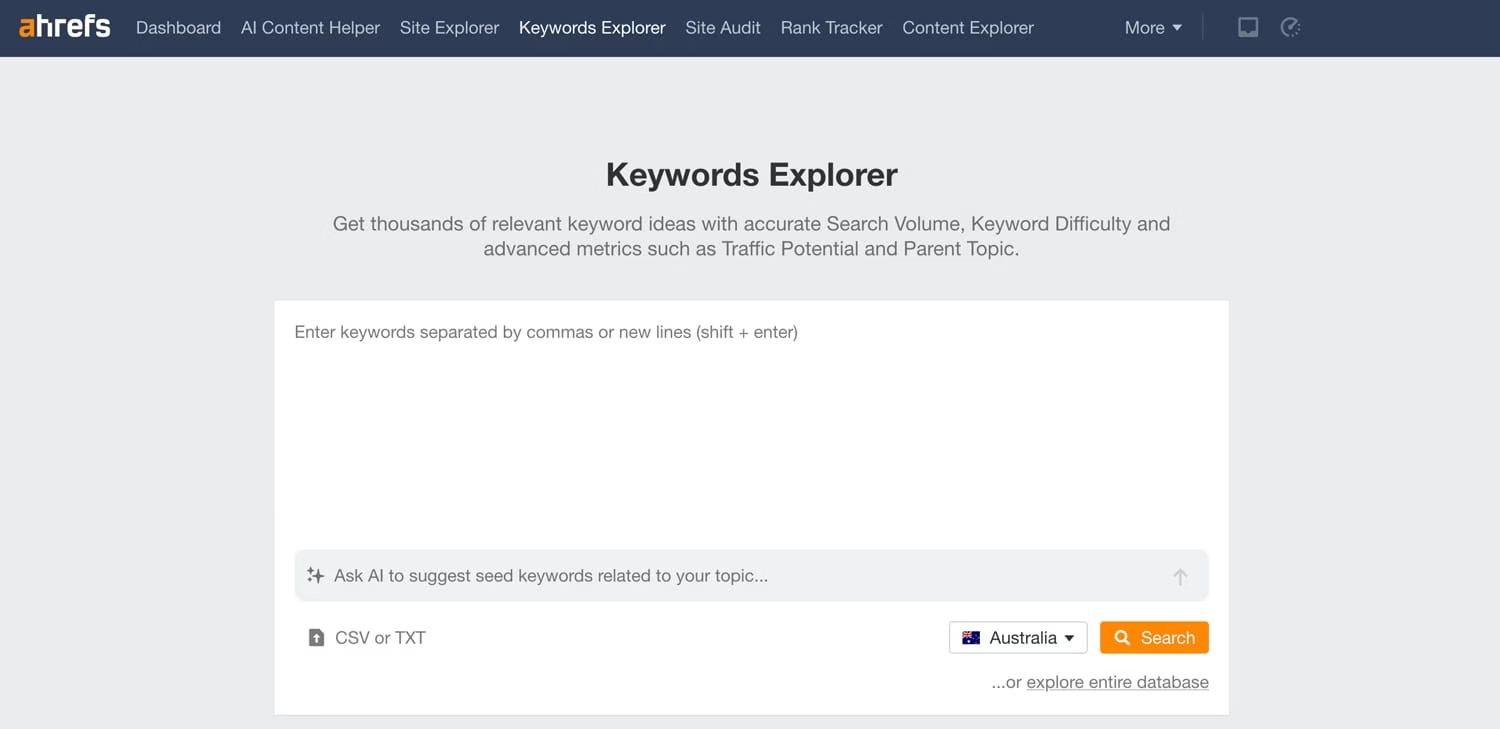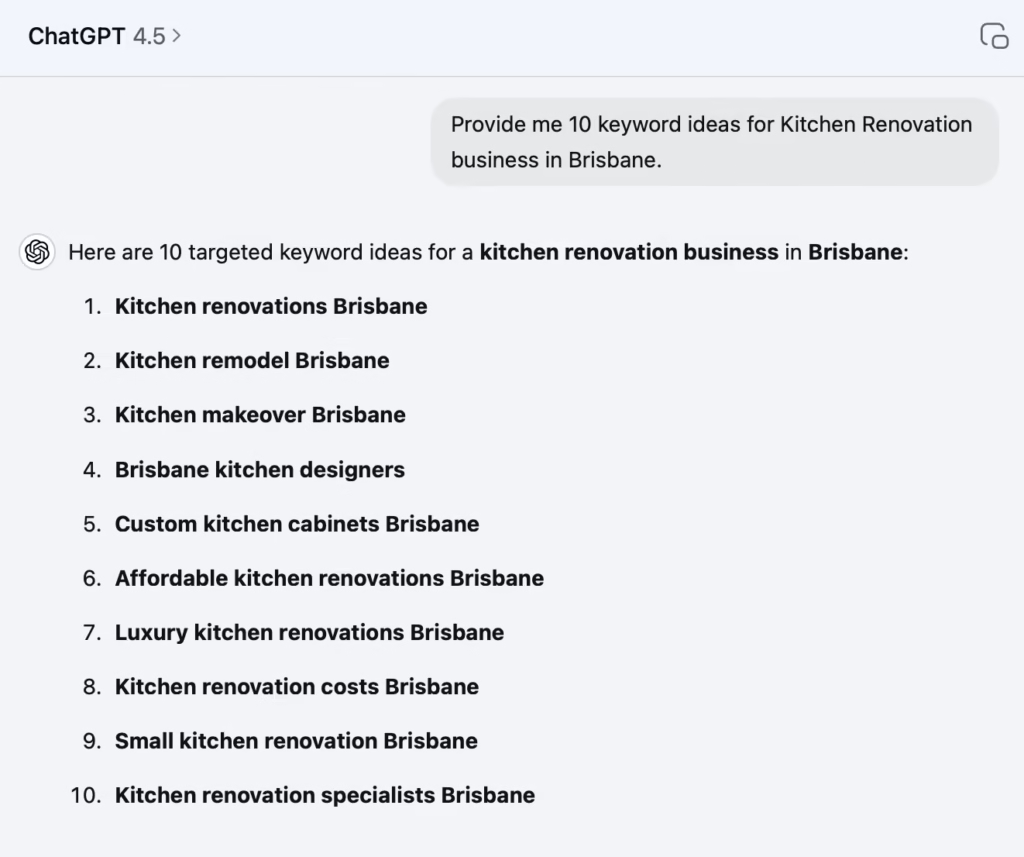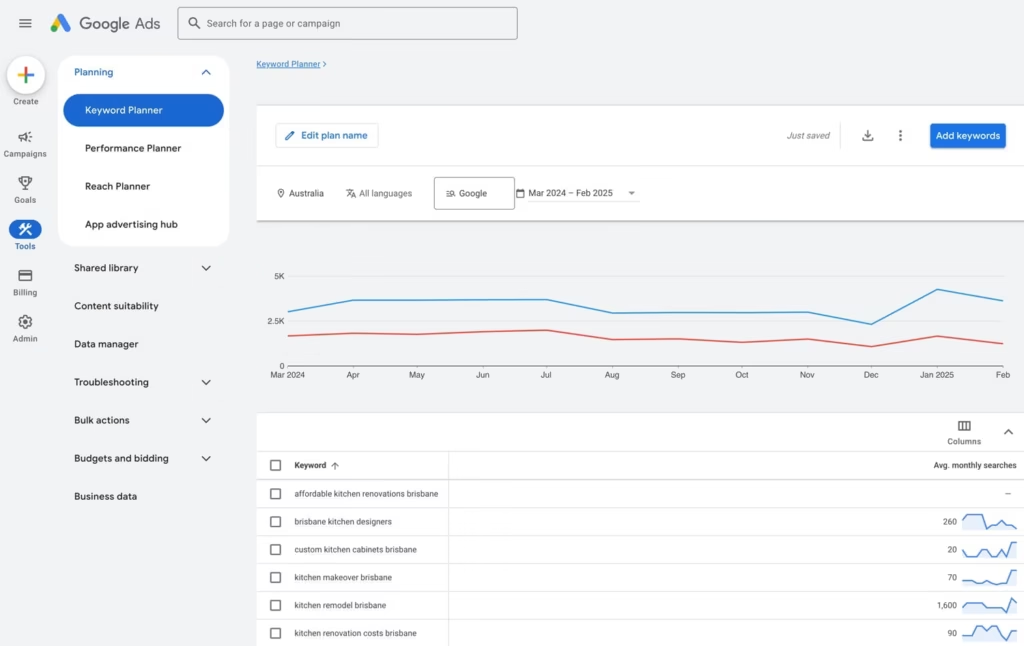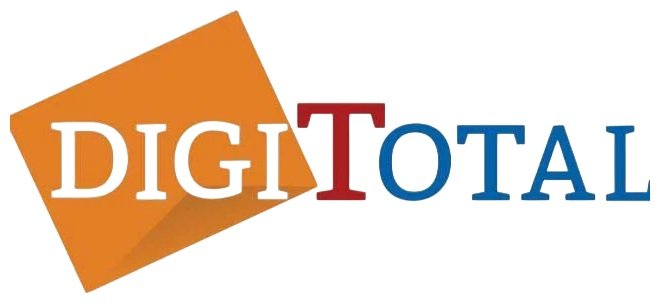What is The Purpose of Keyword Research?
The primary goal of keyword research is to identify the specific search terms your target audience uses when looking for your products or services. By understanding these terms, you can align your website content to better match user intent, ultimately helping you attract more relevant traffic and improve your search engine rankings.
Although Google does not publicly disclose its exact search volume data, statistics from StatCounter indicate that, as of February 2025, Google holds a dominant 90.14% share of the global search engine market. This clearly positions it as the key platform to focus on for any SEO strategy. According to estimates cited by ChatGPT, approximately 99,000 searches are performed every second worldwide. That adds up to an astonishing 8.5 billion searches per day highlighting just how vital search visibility is for any business.
In this article, we’ll explore the importance of keyword research in depth examining how it supports your SEO efforts, uncovers high-value opportunities, and connects your business with the most relevant audience. Whether you’re just beginning with SEO or aiming to sharpen your current strategy, this comprehensive guide will equip you with essential knowledge and actionable insights to boost your online presence and drive measurable results.
Why Keyword Research is Important for SEO Success
Keyword research is essential for identifying the search terms your audience uses, allowing you to craft targeted content that directly aligns with their intent. It serves as a foundation for your SEO strategy by highlighting high-value, low-competition keywords that can enhance your visibility and drive more qualified traffic to your website.
As a core element of any effective SEO approach, keyword research influences how search engines interpret and rank your content. Search engines like Google deploy bots to crawl your website, scanning the keywords and phrases you use to determine where your pages should appear in search results.
By understanding and targeting the specific terms your audience searches for most, you can produce content that speaks directly to their needs improving engagement and increasing your chances of ranking prominently. Without a clear keyword strategy, your content risks being overshadowed by competitors who are optimising for those same valuable terms.
In today’s SEO landscape, there has been a notable shift toward user-centric content. While keyword research remains a critical component, the focus has expanded to include the creation of original, relevant, and timely content that genuinely connects with your audience.
What Are Short-Tail and Long-Tail Keywords?
Short-tail keywords are broad search terms, typically one to two words long, such as “accountant Sydney.” These keywords tend to generate high search volume but come with strong competition, making it harder to rank for them.
Long-tail keywords, on the other hand, are longer and more specific phrases like “best tax accountant in Sydney.” These terms usually have lower search volume but target users with clearer intent, resulting in less competition and more qualified traffic.
Body keywords fall somewhere in between. For example, a term like “tax accountants” is more specific than a short-tail keyword but not as detailed as a long-tail phrase.
Using a combination of short-tail, body, and long-tail keywords in your SEO strategy allows you to reach a broader audience while still capturing highly targeted traffic that’s more likely to convert.

What Is the Best Keyword Research Tool?
Choosing the right keyword research tool can significantly impact the success of your SEO strategy. Some of the most trusted tools in the industry include Google Keyword Planner, Google Search Console, Ahrefs, and SEMrush each offering distinct advantages.
Google Keyword Planner is popular for its simplicity and reliability. As a free tool, it offers valuable insights into search volume, keyword competition, and trending terms. It’s a great starting point for both organic keyword ideas and PPC campaigns.
Google Search Console provides performance data directly from your website, showing which keywords are already generating clicks and impressions. This real-time feedback is especially useful for uncovering long-tail keywords and fine-tuning your existing content strategy.
Ahrefs is a robust SEO tool favoured by professionals for its expansive keyword database and advanced metrics like Keyword Difficulty (KD) and click potential. It’s particularly effective for crafting data-driven strategies and conducting in-depth competitor analysis to reveal untapped keyword opportunities.
SEMrush is another comprehensive tool known for its versatility. Beyond keyword research, it delivers insights into PPC performance, content ideas, and competitor strategies. Its intuitive interface makes it suitable for both beginners and seasoned marketers.
AI Tools for Keyword Research
- ChatGPT can play a valuable role in keyword research by helping you brainstorm keyword ideas and generate long-tail variations through conversational prompts. By asking targeted questions or providing context about your niche, ChatGPT can deliver creative, relevant keyword suggestions tailored to your audience. It’s particularly effective for uncovering search intent and gaining insight into how users naturally phrase their queries.

- Gemini, another AI-powered tool, stands out for its ability to merge keyword research with market trends and user behaviour analysis. It delivers real-time insights and predictive analytics, helping you stay ahead of the competition. With its capacity to process large datasets and recommend actionable strategies, Gemini serves as a powerful asset for SEO campaigns.
These AI tools go beyond supporting traditional methods, they enhance your understanding of audience behaviour, spark content ideas, and sharpen targeting. Combining AI with conventional tools leads to a smarter, more effective keyword strategy.
How to Find The Best Keywords for Your Business
Identifying the right keywords is essential for building a strong online presence and attracting targeted traffic through SEO. By selecting keywords that align with your audience’s needs, you can improve your search engine rankings and reach your business goals. Here’s a step-by-step guide to help you find the best keywords for your business:
- Understand Your Audience
Begin by defining your target audience and understanding their pain points. Consider what they’re likely to search for when looking for your products or services. Take into account their location, preferences, and the phrases they commonly use—this is known as search intent. - Brainstorm and List Ideas
Make a list of potential keywords that reflect your services. Include both broad and specific terms like “kitchen renovations” or “[location] kitchen renovation experts.” You may need separate keyword lists for each service your business offers. - Use Keyword Research Tools
Utilise tools such as Google Keyword Planner, Ahrefs, SEMrush, and Google Search Console to evaluate search volume, competition, and trends. AI tools like ChatGPT and Gemini can also suggest creative, industry-specific keyword ideas. - Analyse Competitors
Research the keywords your competitors are targeting. Tools like Ahrefs and SEMrush can reveal their top-performing organic keywords and paid campaigns. This helps you identify gaps and areas where your business can stand out. - Focus on Long-Tail Keywords
Target longer, more specific keyword phrases such as “affordable kitchen renovations in [location].” While they may have lower search volume, they attract highly targeted users and are particularly effective for local or niche SEO strategies. - Test and Refine
After implementing your keywords across your website, blog, and ads, monitor their performance using tools like Google Search Console. Adjust your strategy based on what’s working to continuously improve your results.
By combining audience insight, keyword tools, competitor analysis, and ongoing optimisation, you can discover the best keywords to drive meaningful traffic and convert visitors into loyal customers.

The Metrics You Need to Consider Carefully
One of the key metrics to evaluate is Search Volume, which reflects how often a specific keyword or phrase is searched. Understanding this metric helps you estimate the popularity and potential reach of a keyword.
Another important metric is Keyword Difficulty, which indicates how competitive a term is and how hard it will be to rank for it. When choosing keywords, it’s wise to focus on those with lower difficulty scores to improve your chances of ranking well. Targeting high-difficulty keywords can consume valuable resources with limited return, so it’s essential to find the right balance between search volume and keyword difficulty to maximise your SEO results.
Best Practices for Optimising Your Website for Keywords
Optimising your website for keywords is essential for improving search engine rankings and enhancing user experience. Start by crafting strong meta titles that feature your primary keyword early on and keep them under 60 characters. Use keyword-rich headings (H1, H2, H3) to structure your content and signal relevance to search engines.
Keep your URLs short, clean, and focused on target keywords to improve both SEO performance and user readability.
Within your content, naturally incorporate primary and related (semantic) keywords—particularly in the introduction, subheadings, and conclusion. Focus on delivering clear, valuable content for readers, and avoid keyword stuffing, which can harm both rankings and readability.
Strengthen your internal linking strategy by using keyword-rich anchor text to connect related pages. This not only improves user navigation but also helps search engines understand your site’s structure and relevance.
But keep in mind…
There’s no exact formula for how often you should use a keyword. As a general rule, your content should read naturally and avoid obvious repetition. If it sounds forced, it likely is—and may lead to penalties from search engines.
Ready to take your SEO to the next level?
Reach out to the team at DigiTotal for expert guidance and tailored strategies that help your business grow online. Let us help you turn keyword optimisation into measurable results.


